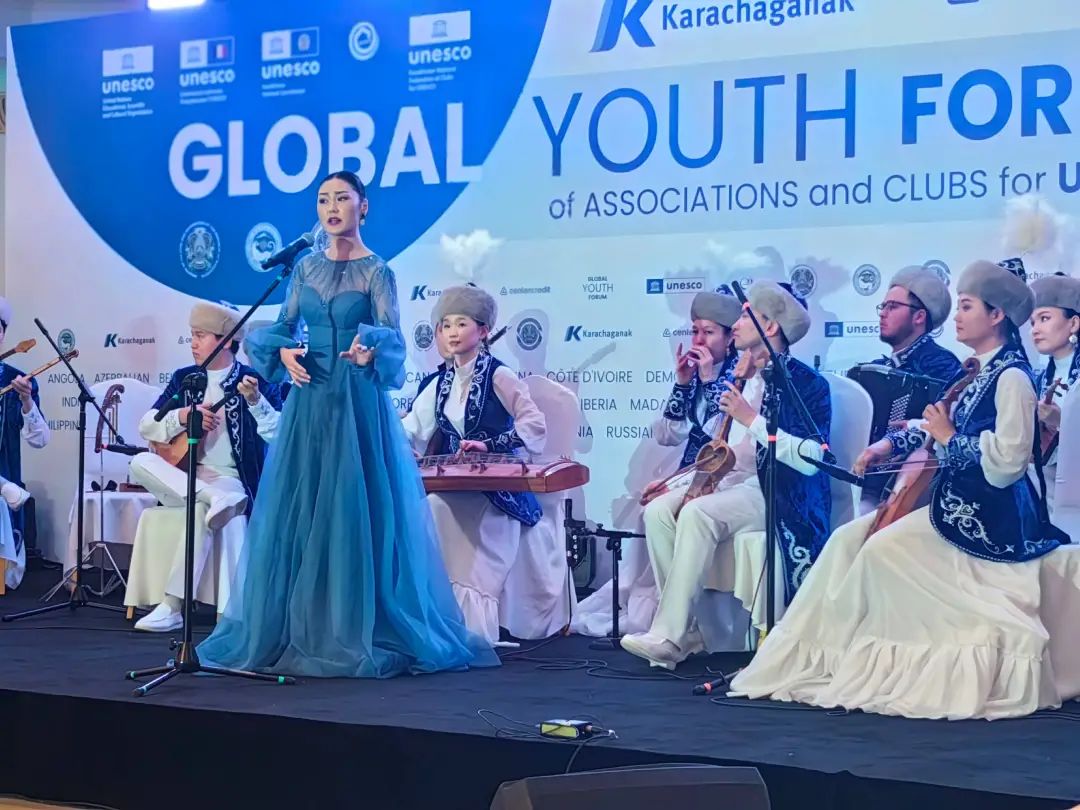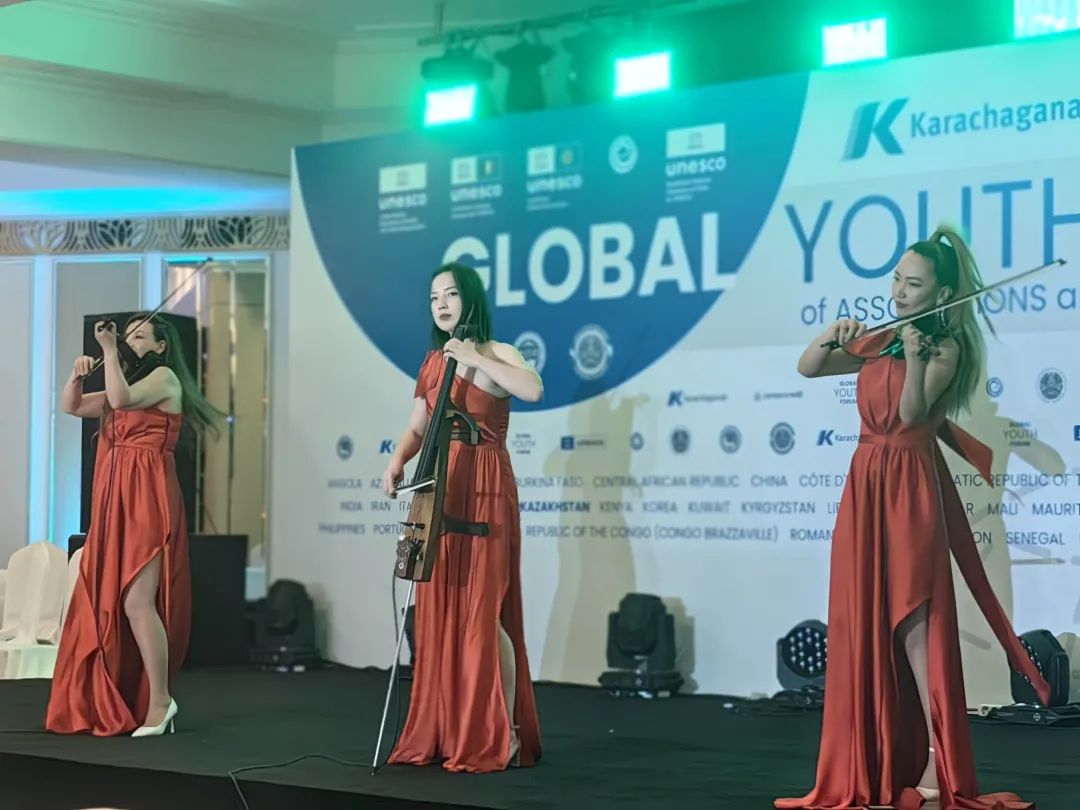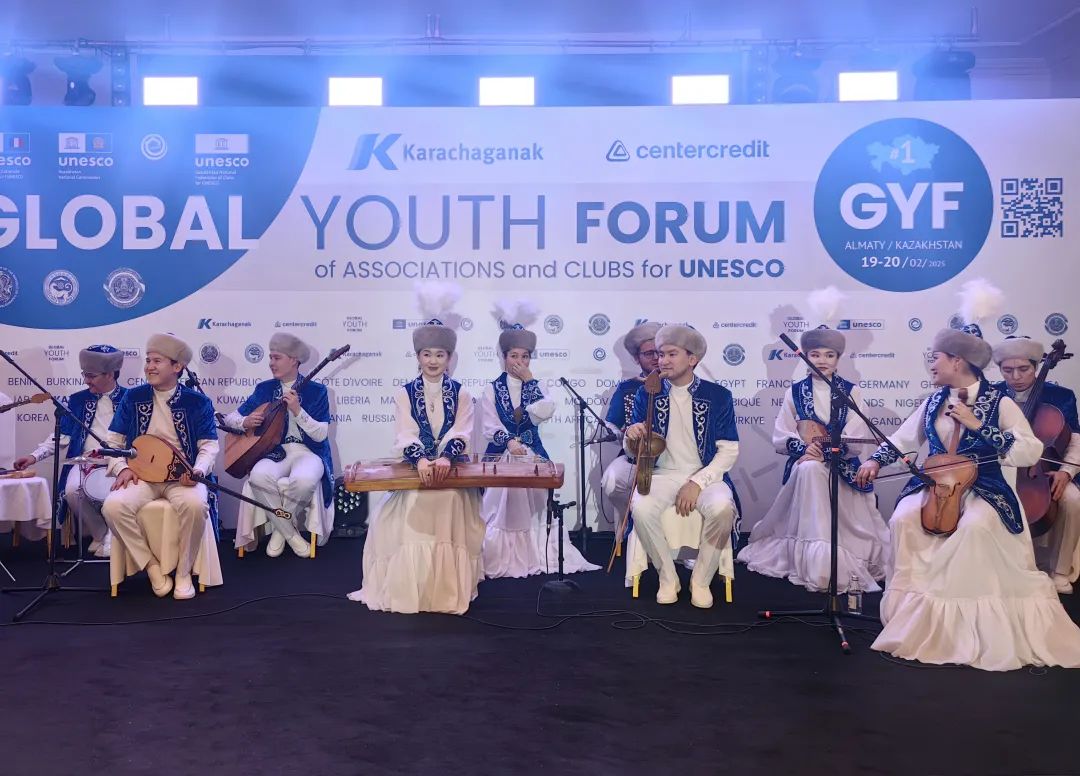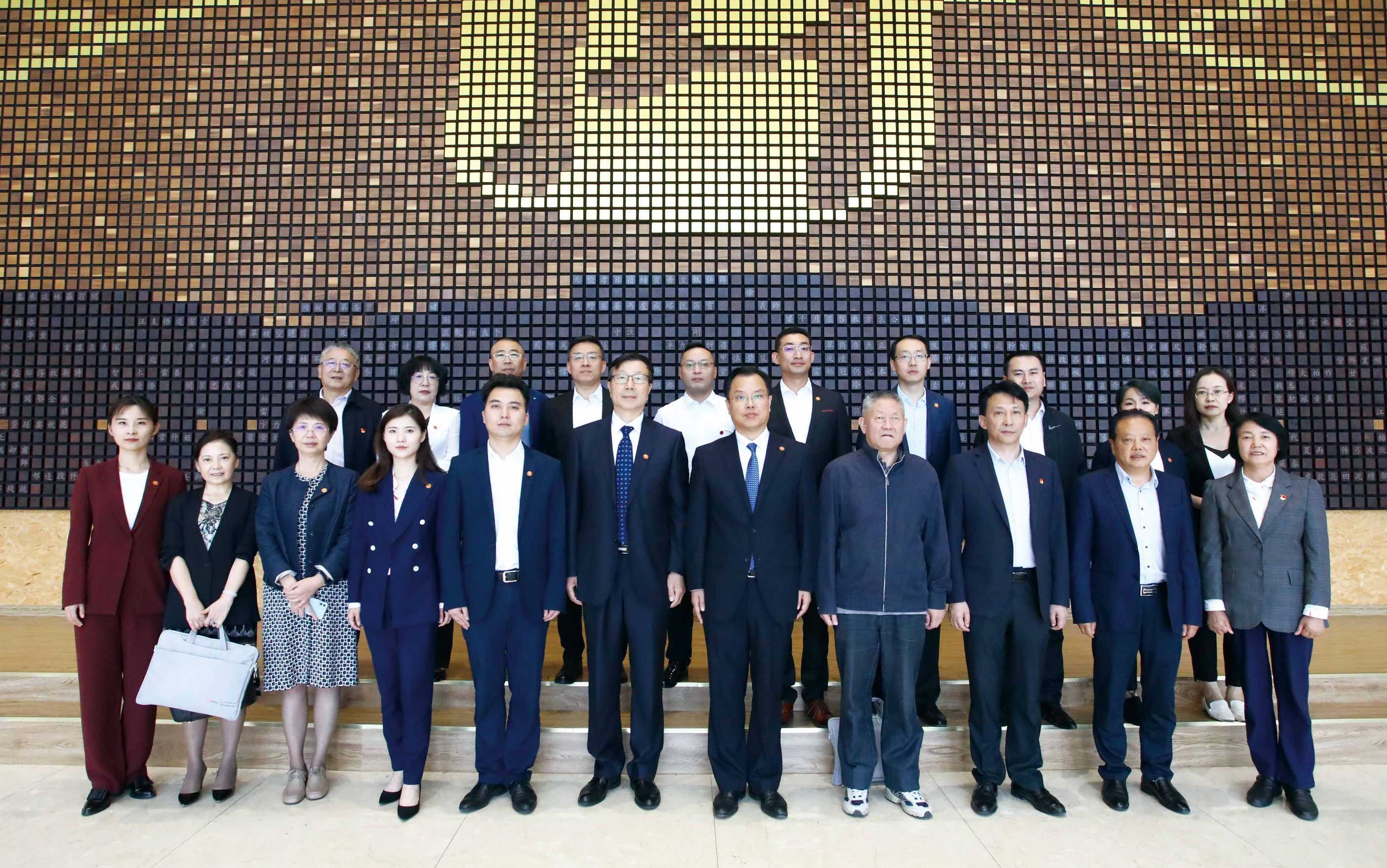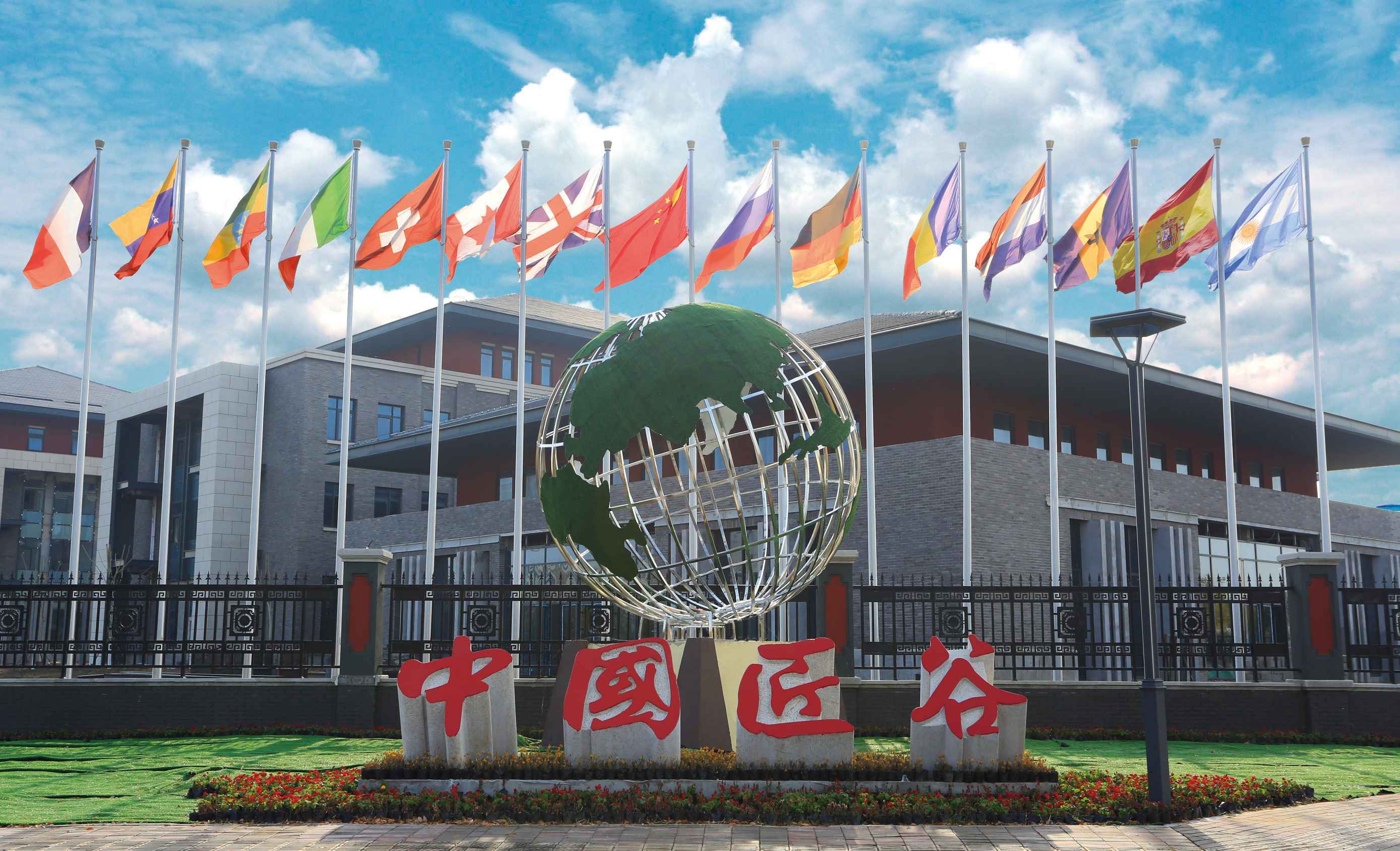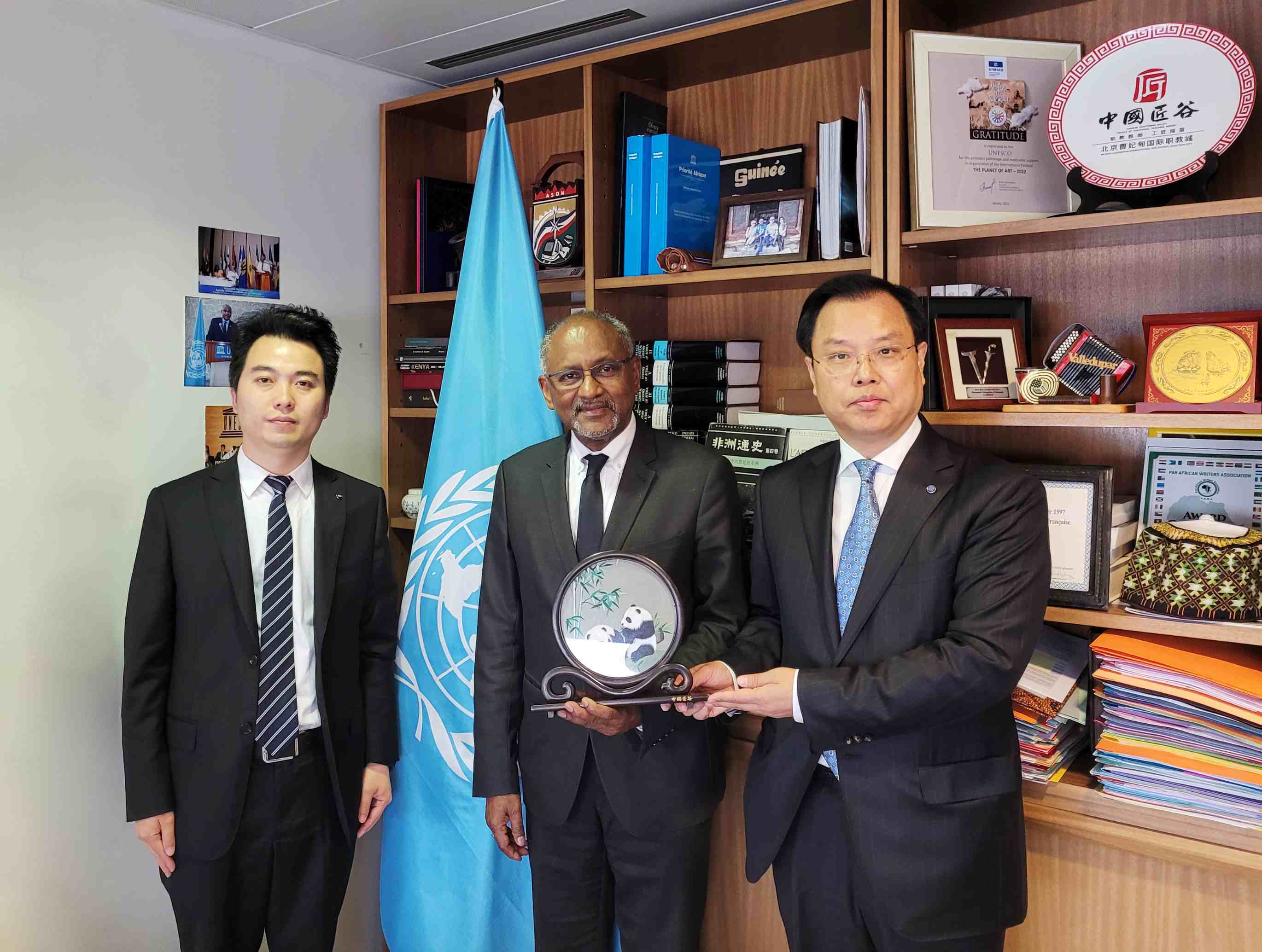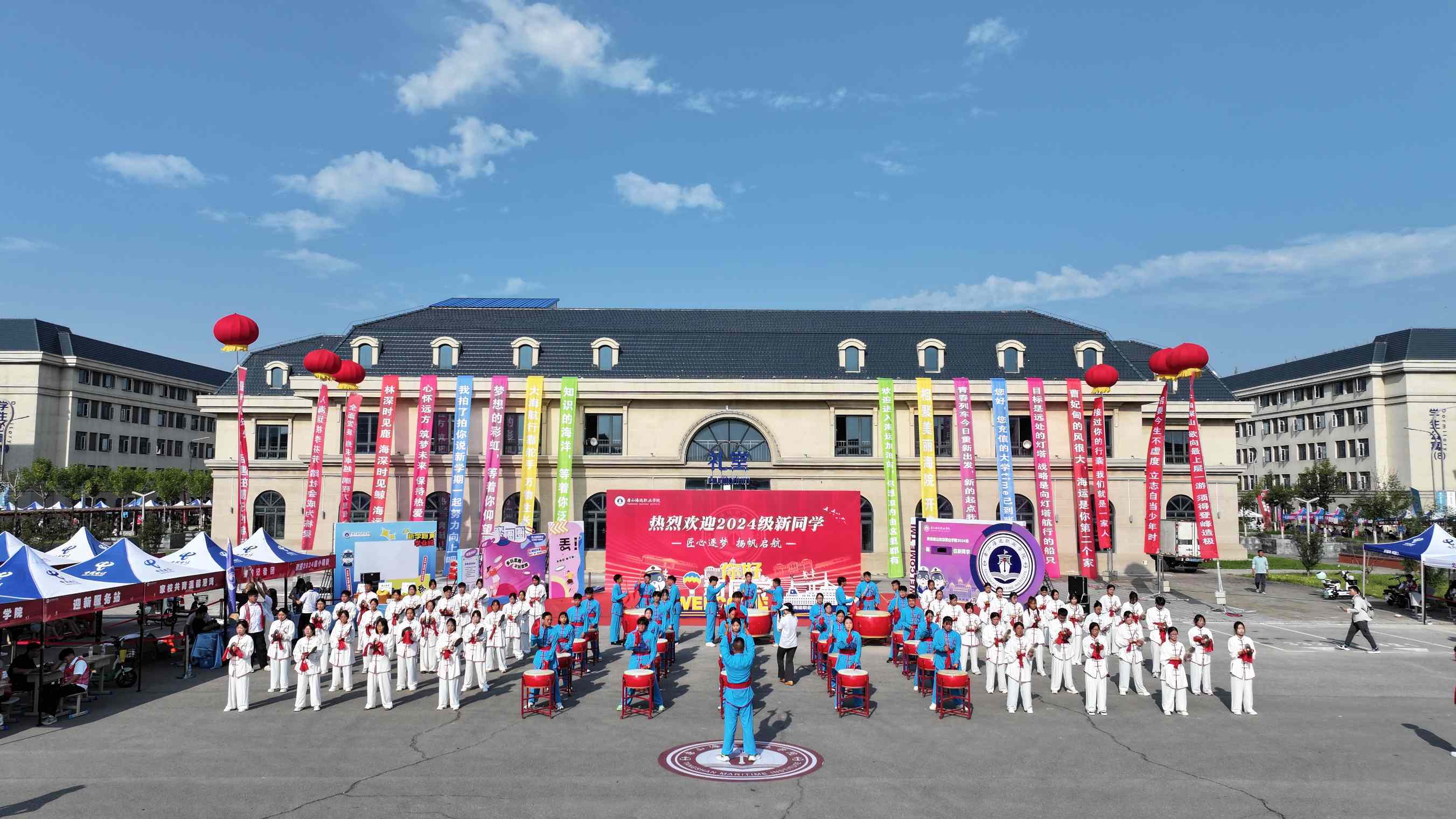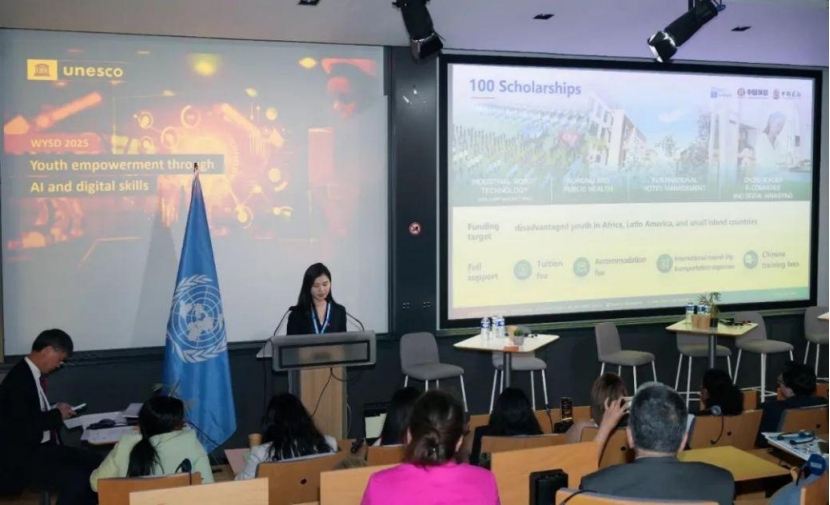Building Youth Capacities, Driving a Sustainable Future | China POCY Group Was Invited to Attend the First UNESCO Global Youth Forum
Release time:Feb 21,2025
In September 2015, the United Nations adopted the 2030 Agenda for Sustainable Development, setting out 17 Sustainable Development Goals (SDGs) to be achieved over 15 years. These include eradicating poverty, providing quality education, achieving gender equality, and promoting decent work and economic growth. Globally, youth are widely recognized as a vital force for social transformation and development. To achieve the SDGs by 2030, the international community must rely more on the younger generation.
To enhance the capacity of youth to participate in global governance, the First Global Youth Forum was grandly held in Almaty, Kazakhstan, from February 19 to 20, 2025. The event was co-hosted by UNESCO, the World Federation of UNESCO Clubs, Centers and Associations (WFUCA), and supported by the French National Commission for UNESCO, the Kazakhstan National Commission for UNESCO, and the WFUCA Kazakhstan branch.
Mr. Yao Yichun, President of China POCY Group and Chairman of the WFUCA Committee for Industry-Education Integration, and Mr. Yang Zhilin, Executive President of China POCY Group, were invited to attend the forum and shared innovative practices in youth education, contributing Chinese wisdom to global youth capacity-building.
Focus on Youth Wisdom and Power
Under the theme “Building Youth Capacities as a Driving Force for a Sustainable Future”, the forum attracted nearly 200 youth delegates, international organization leaders, education experts, and business executives from 60 countries across Asia-Pacific, Africa, Europe, the Americas, and the Arab region.
At the opening ceremony, the following dignitaries delivered speeches emphasizing the vital role of youth in achieving the 2030 SDGs and the importance of empowering young people with the necessary resources and platforms for engagement:
- Firmin Edouard Matoko, Assistant Director-general of the Africa Department and External Relations of UNESCO (video message)
- Mohamed Elfarnawany, Coordinator for Priority Africa at UNESCO
- Bolat Akchulakov, 10th President of the WFUCA
- Du Yue, Secretary-General of the WFUCA
- Azamat Kaldybekov, Deputy Mayor of Almaty
- Zhanar Shaimenova, Secretary-General of the Kazakhstan National Commission for UNESCO and ISESCO
- Alexandre Navarro, Secretary-General of the French National Commission for UNESCO
- Kairat Kambarov, Chair of the Committee on Youth and Family Affairs, Ministry of Culture and Information of Kazakhstan
All remarks emphasized that the realization of the United Nations 2030 Sustainable Development Goals (SDGs) cannot be achieved without the active participation of young people. Providing young people with the resources they need to realize their potential and allowing them to participate in global development is key to building a more just, equal and prosperous world.
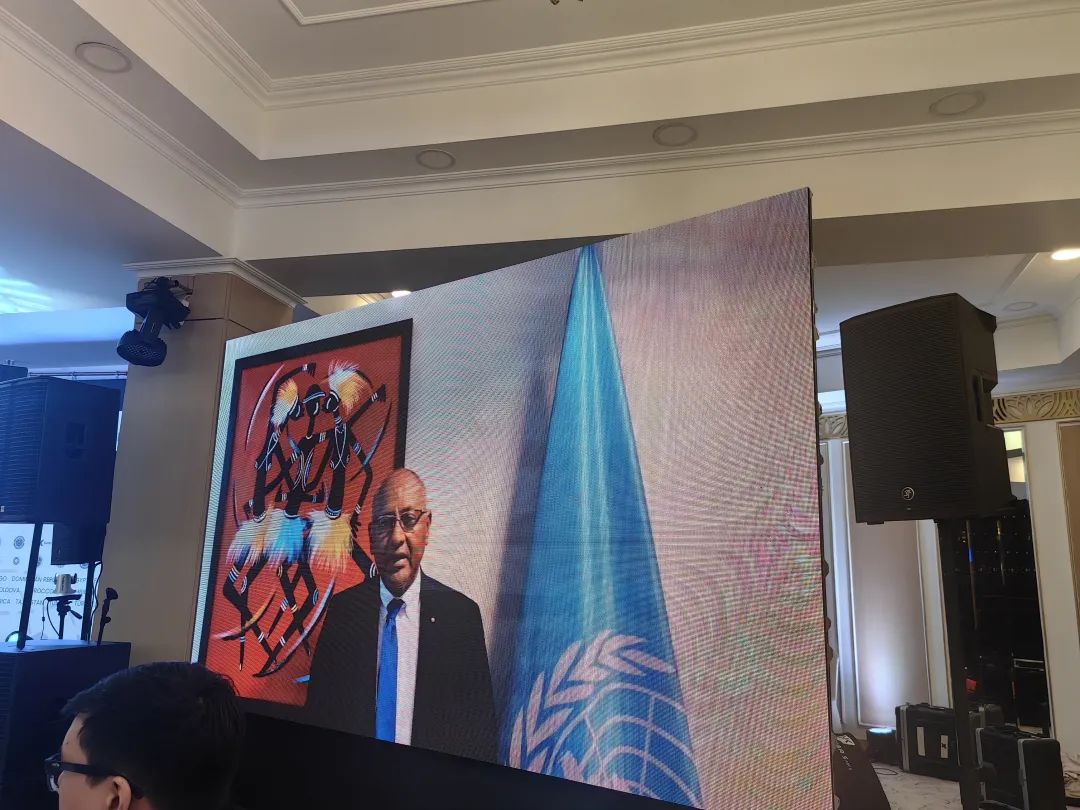
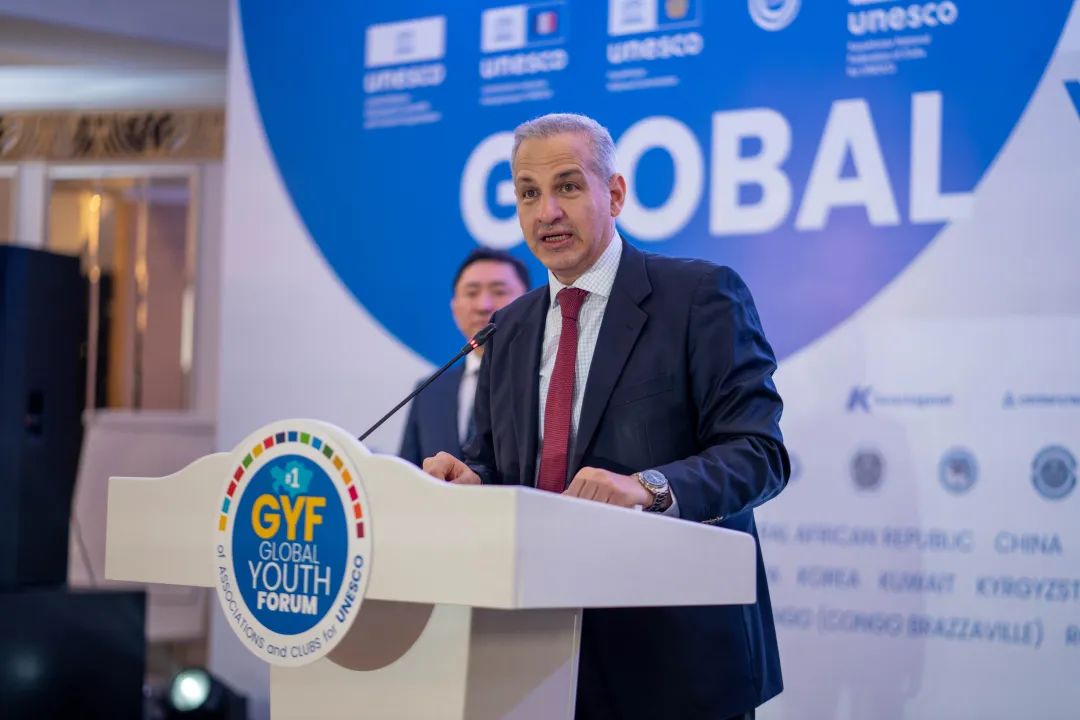 |
Firmin Edouard Matoko, Assistant Director-general of the Africa Department and External Relations of UNESCO (Video Speech)
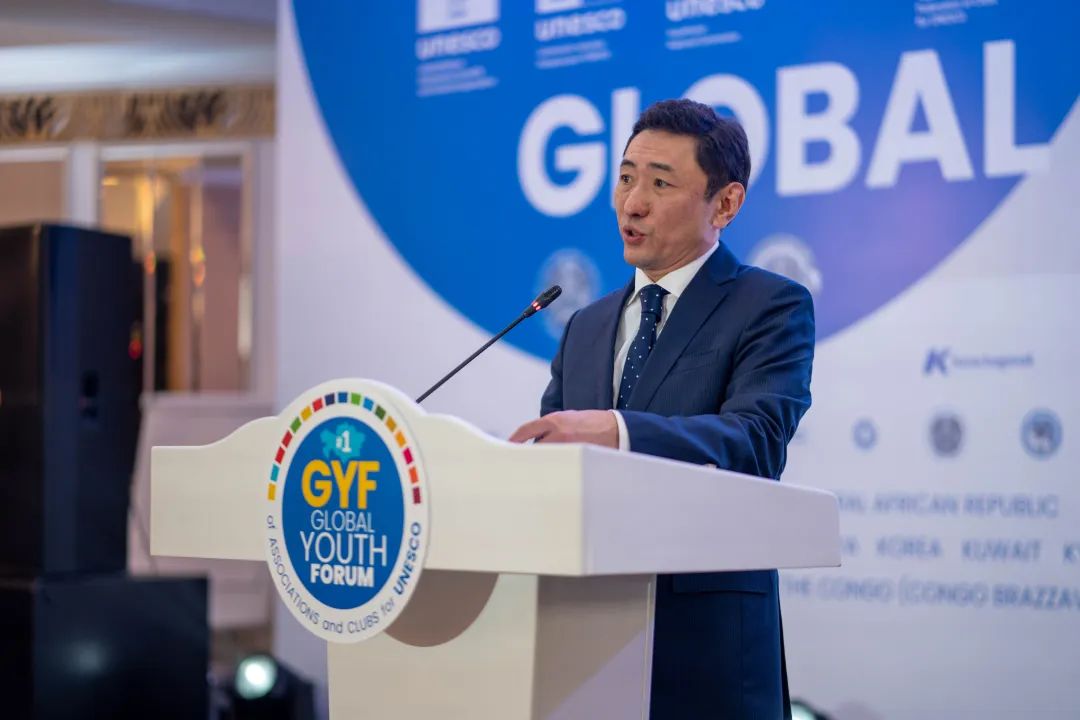 |
Mohamed Elfarnawany, Director of the Division of Priority Africa Coordination of UNESCO (Opening Speech)
Bolat Akchulakov , 10th President of the World Federation of Clubs, Centres and Associations for UNESCO
(Opening Speech)
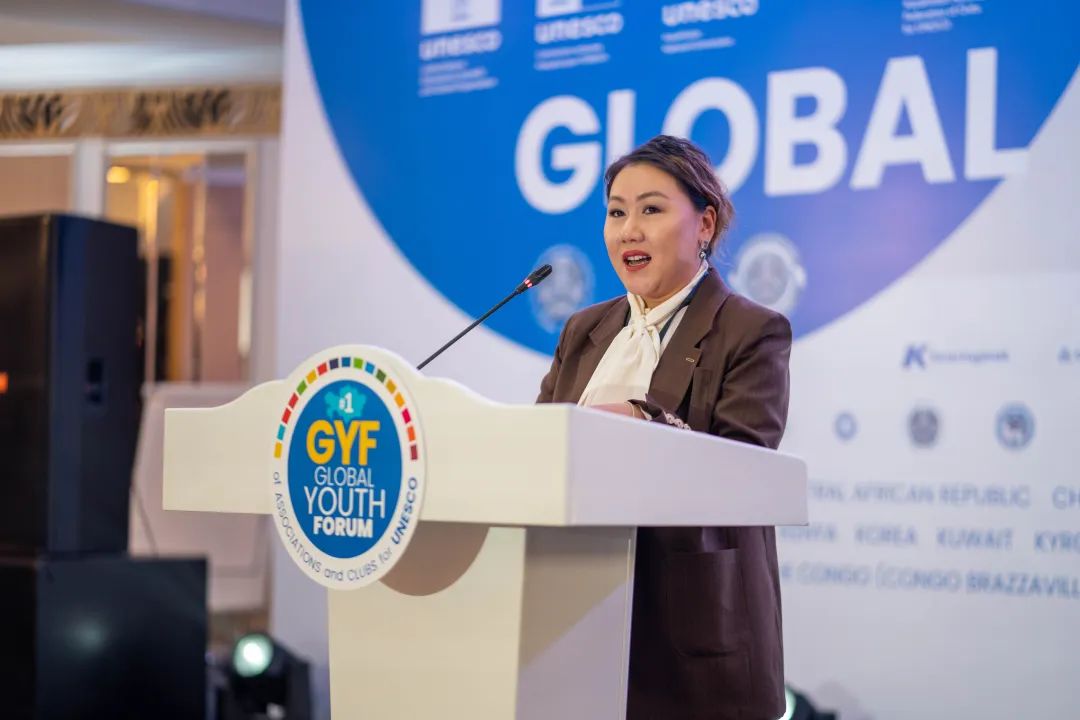 |
Zhanar Shaimenova, Secretary-General of the National Commission of Kazakhstan for UNESCO and IСESCO
(Opening Speech)
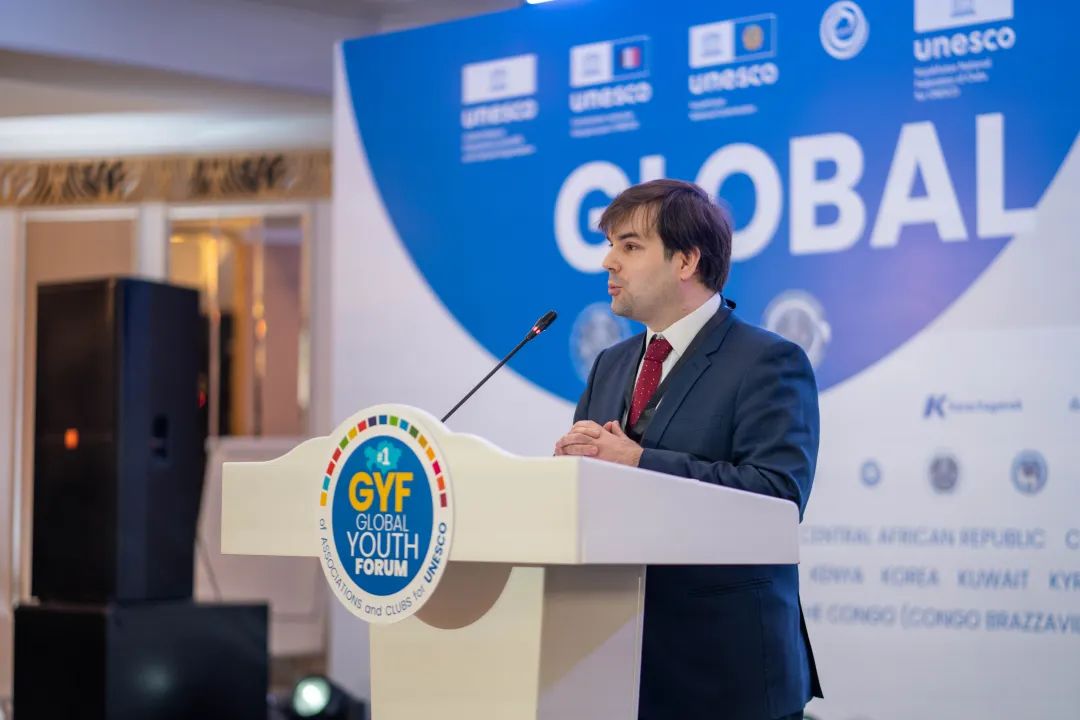
Alexandre Navarro, Secretary-General of the French national Commission for UNESCO
(Opening Speech)
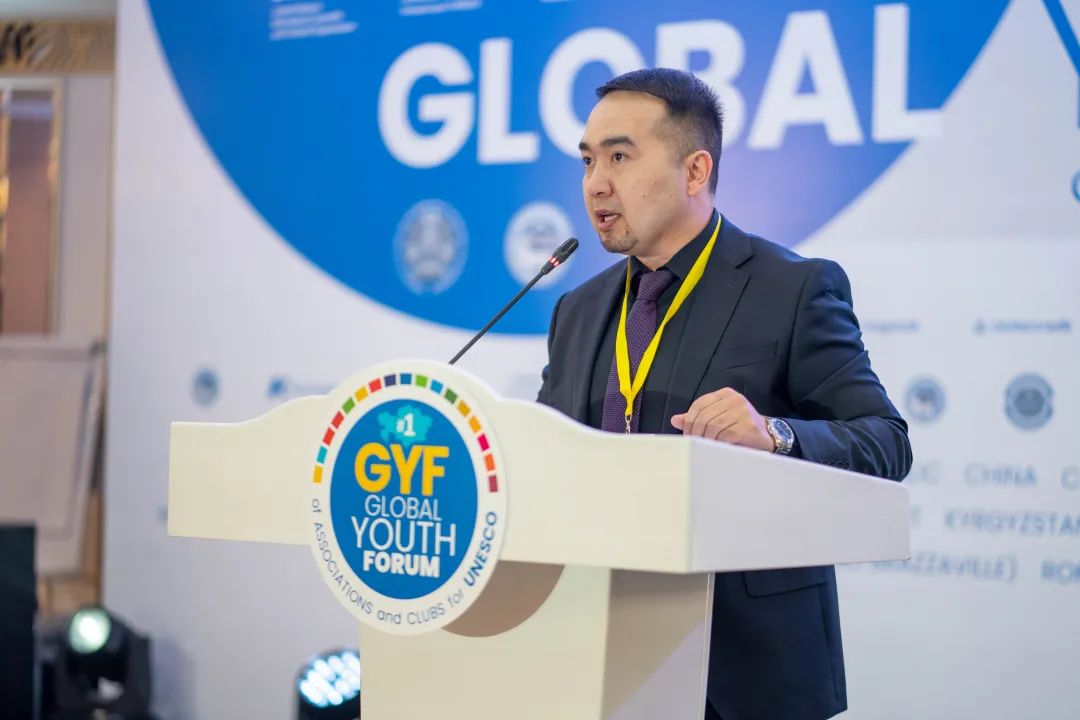 Kairat Kambarov, Chairman of the Committee on Youth and Family Affairs of the Ministry of Information and Social Development
Kairat Kambarov, Chairman of the Committee on Youth and Family Affairs of the Ministry of Information and Social Development
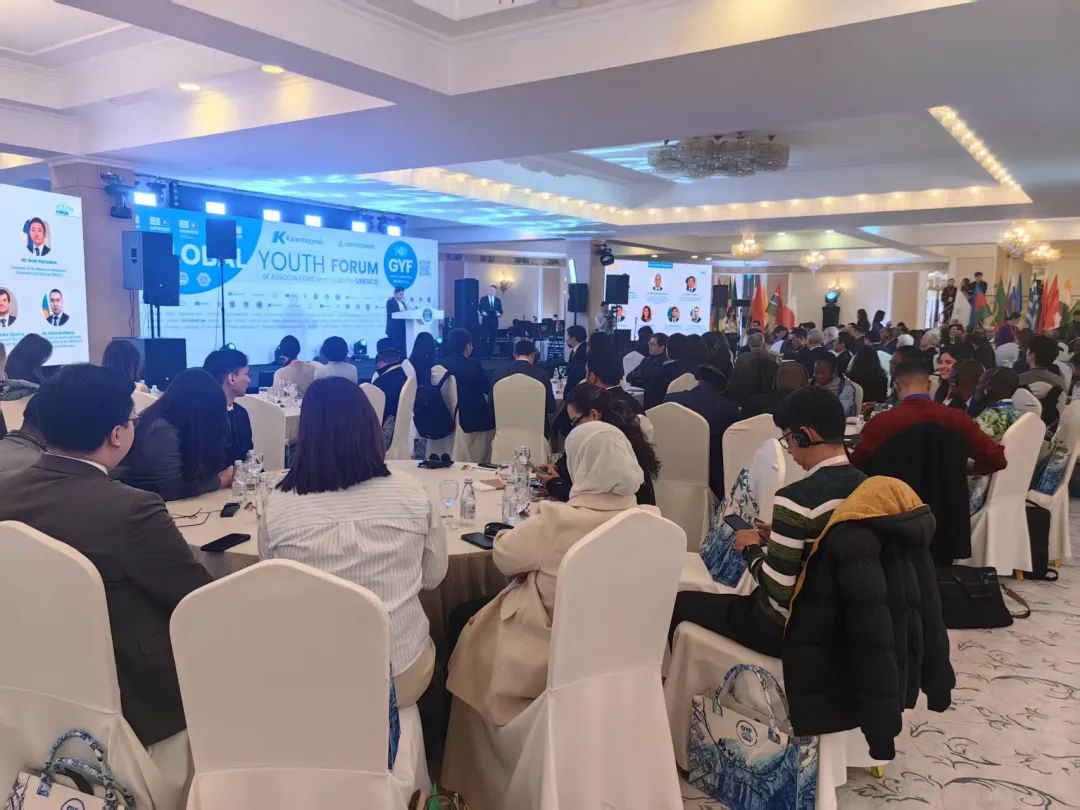 |
(Opening Speech)
Opening Ceremony
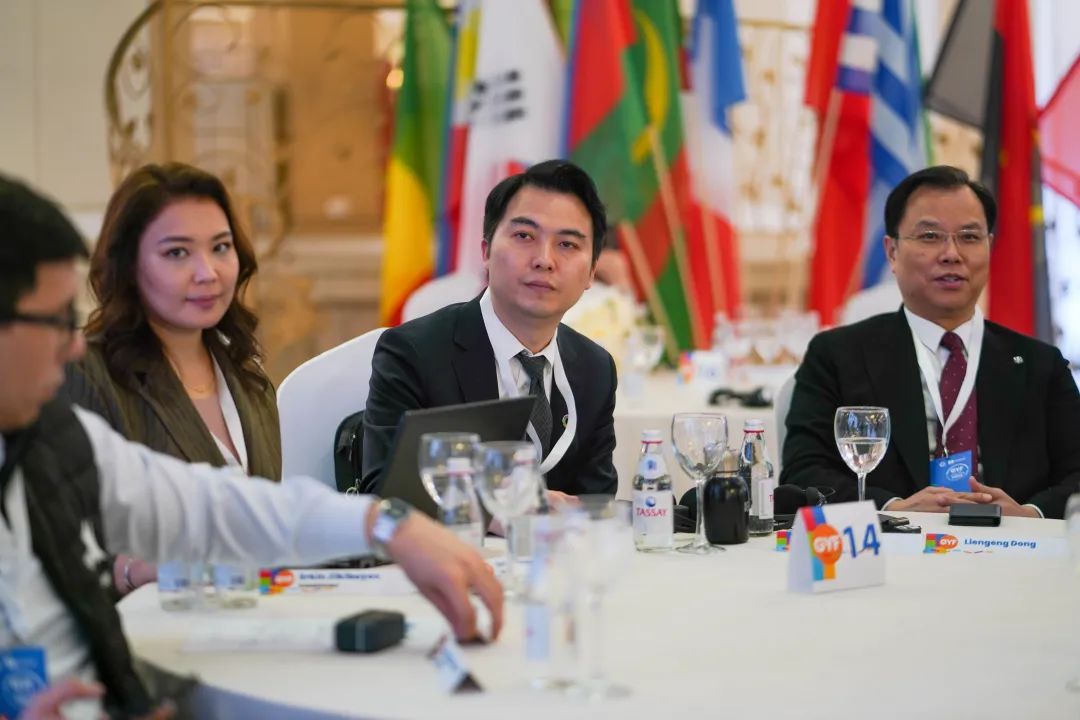 |
Leaders of China POCY Group Attend the Opening Ceremony
Jointly Discussing Youth Core Capacity Building
Youth are the driving force of social transformation and a key group for achieving the United Nations 2030 Sustainable Development Goals (SDGs). At present, the world faces challenges such as climate change, the digital divide, and unequal access to educational resources. The young generation is accelerating the global transition toward a green, inclusive, and sustainable future through knowledge sharing, innovative action, and cross-border collaboration.
This forum focused on pathways to enhance youth capacities, with in-depth discussions around topics such as educational empowerment, digital transformation, and cross-regional cooperation. At the main forum, seven guest speakers—including Assel Utegenova, Liaison Officer and Coordinator for the Associations and Clubs in the Africa Department of UNESCO’s Priority Africa and External Relations Sector; Yuji Suzuki, Secretary General of the National Commission of the Federation of Clubs, Centres and Associations for UNESCO in Japan; and Sudha Balakrishnan from the UN Office of the Secretary-General’s Envoy on Youth—shared insights and experiences on how education, innovation, and cooperation can drive global development and empower youth.
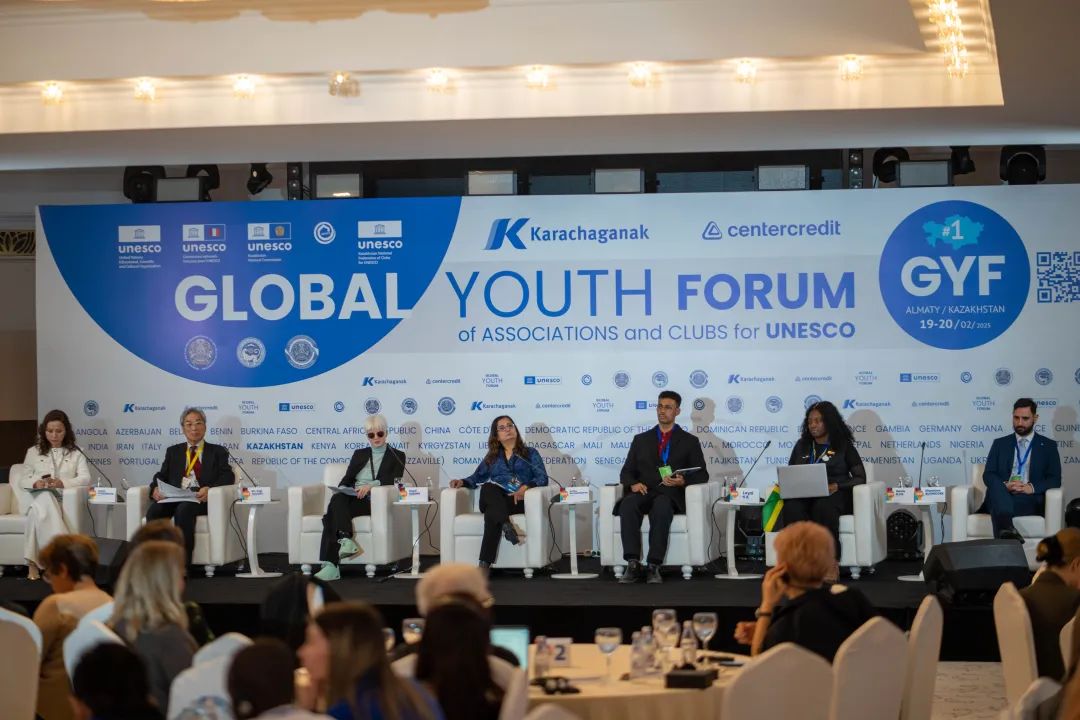
Guest Speech
Showcasing Innovative Practices in Youth Empowerment and Growth
On the afternoon of February 19, the World Federation of UNESCO Clubs, Centers and Associations (WFUCA) convened its 44th Executive Committee Meeting. The meeting focused on youth empowerment, cross-regional cooperation, and innovative actions, resulting in the adoption of several key resolutions that lay the foundation for WFUCA’s work over the next five years.
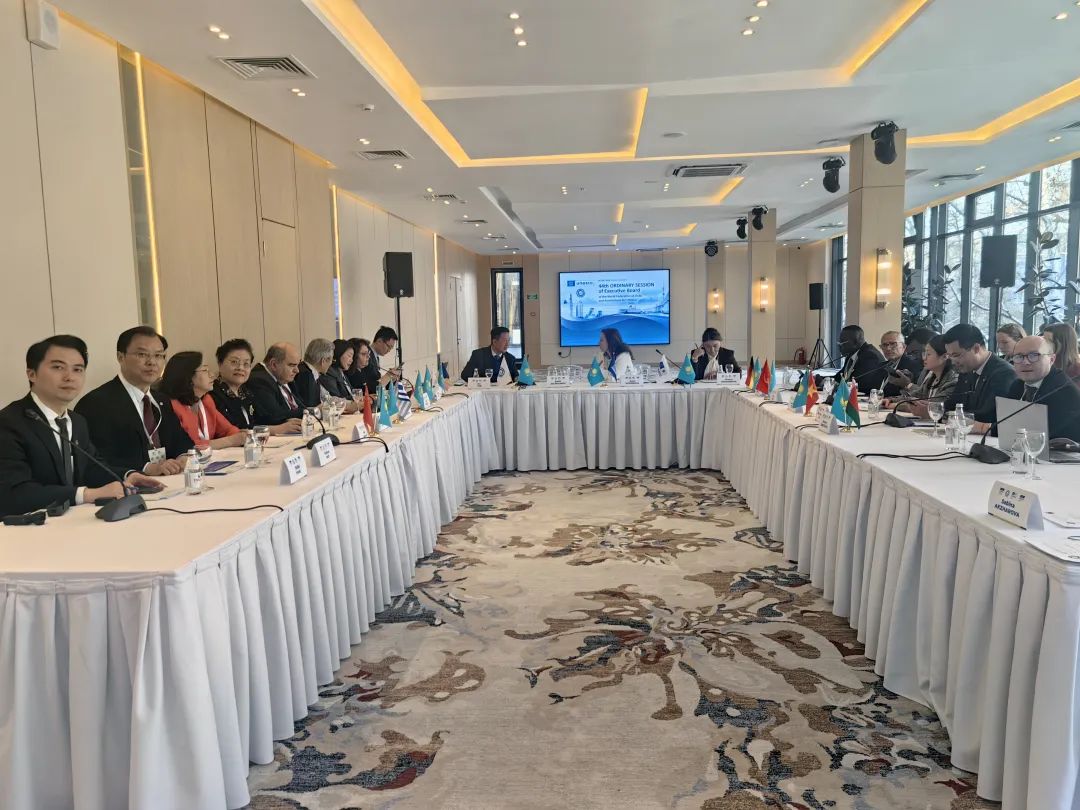
Executive Committee
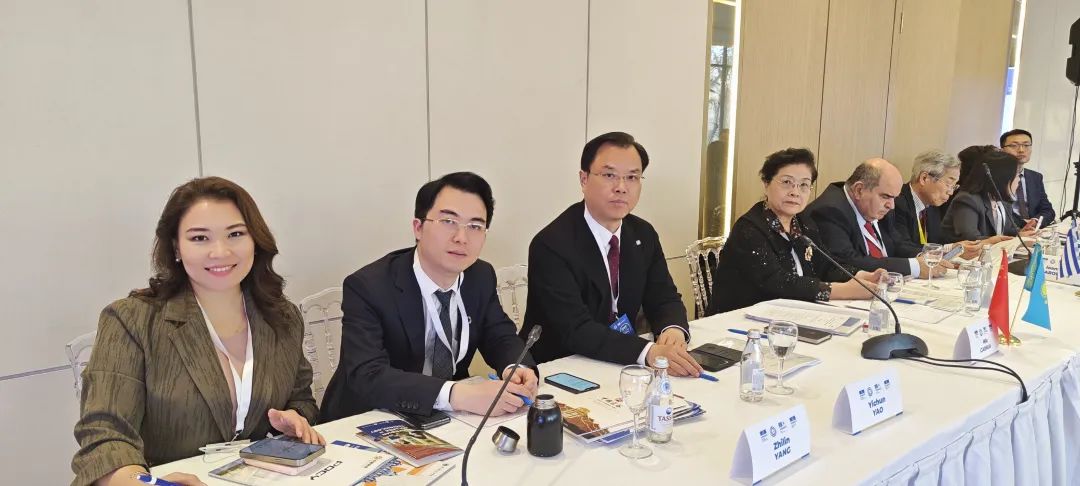 |
Leaders of China POCY Group Attend the Executive Committee Meeting
The meeting reviewed and approved WFUCA’s 2025–2030 series of Youth Roadmaps, identifying priority areas for participation and action. Regional and national representatives reported on key projects for 2025 and shared case studies in education, cultural heritage preservation, and other fields. WFUCA also adopted a new sustainable financial plan to optimize resource allocation and reached consensus on cross-regional resource sharing and cooperation.
Additionally, the newly launched official website, with its interactive platform, will enable members to share data in real time, track project progress, and improve collaboration efficiency. During the case-sharing session, China POCY Group presented its achievements in youth education, skills training, and international cooperation.
As Chair of WFUCA’s International Committee on Industry-Education Integration, China POCY Group has, in recent years, deeply connected with high-quality international educational resources and expanded multidimensional cooperation in various fields. Through quality education and skills training, it has empowered youth development, promoted youth employment, and provided solid talent support for addressing global challenges and building a community with a shared future for humankind.
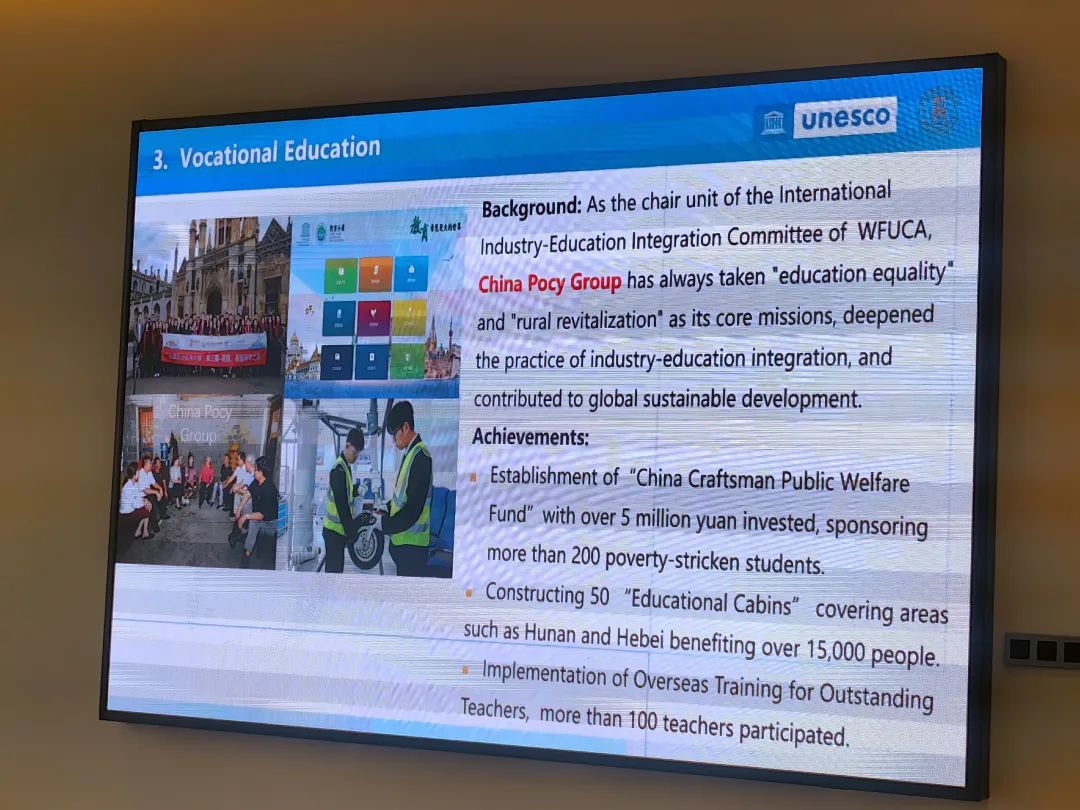 |
China POCY Group Achievement Showcase
On one hand, focusing on the cultivation of young skilled talents, China POCY Group has explored a talent training model featuring work-study alternation, production-based training, internships, and order-based cultivation, thereby promoting school-enterprise cooperation and industry-education integration. This has continuously improved the training chain for high-quality skilled professionals and driven coordinated development between industrial economies and youth talent.
International cooperation has been continuously advanced through initiatives such as the “China Craftsman Valley Excellent Teacher Program,” “China Craftsman Valley Study Tours,” overseas vocational education projects, Sino-foreign cooperative education, and broader international partnerships, cultivating Chinese youth with global competence.
On the other hand, leveraging its unique status as the only “World Vocational and Technical Education and Training Base” established by UNESCO in China, China POCY Group has improved the global high-quality skilled talent training chain, deepened cooperation with African vocational institutions, and implemented China-Africa education and cultural exchange projects in African countries to serve Africa’s priority development strategies. By sharing models such as “order-based training” and the “Five-in-One Support System” with Belt and Road countries, it has contributed to the globalization of vocational education-based poverty alleviation solutions.
Looking ahead, China POCY Group will continue to uphold the philosophy of “Skills Change Lives” and play a key role in enhancing youth rights, fostering innovation, and advancing poverty alleviation and sustainable development through education.
Defining a Global Youth Development Roadmap
Youth are not only beneficiaries of global development but also drivers of change. As a major outcome, the forum released two key documents: The 2025–2030 WFUCA Youth Roadmap: Building a Sustainable Future Together and The 2025–2030 WFUCA Youth Roadmap: Youth Empowerment under UNESCO’s Priority Africa. These roadmaps focus on the mission and core needs of global youth development, urging countries to establish effective policy implementation mechanisms to ensure youth development rights. Under the “Priority Africa” initiative, they call for educational aid to Africa, with particular attention to girls’ education, vocational and technical education, literacy programs, and digital transformation of education, thereby improving the efficiency of educational development in Africa.
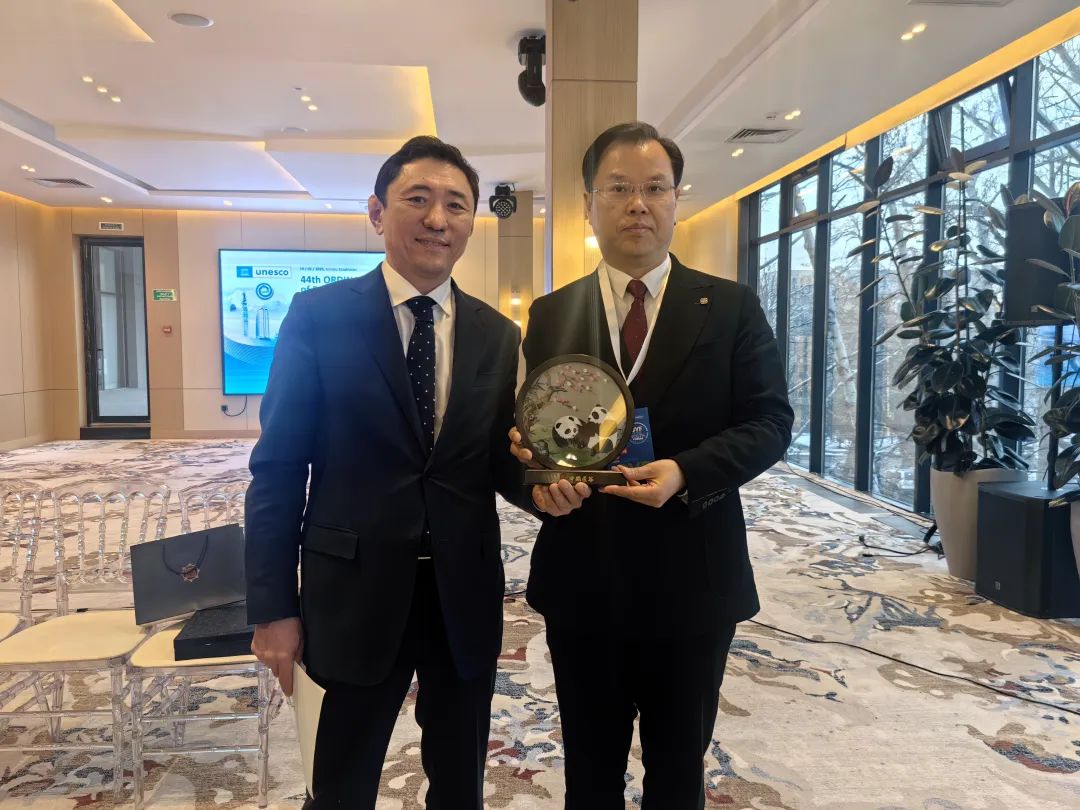
Yao Yichun, President of China POCY Group presented a commemorative gift to Bolat Akchulakov, the 10th President of WFUCA.
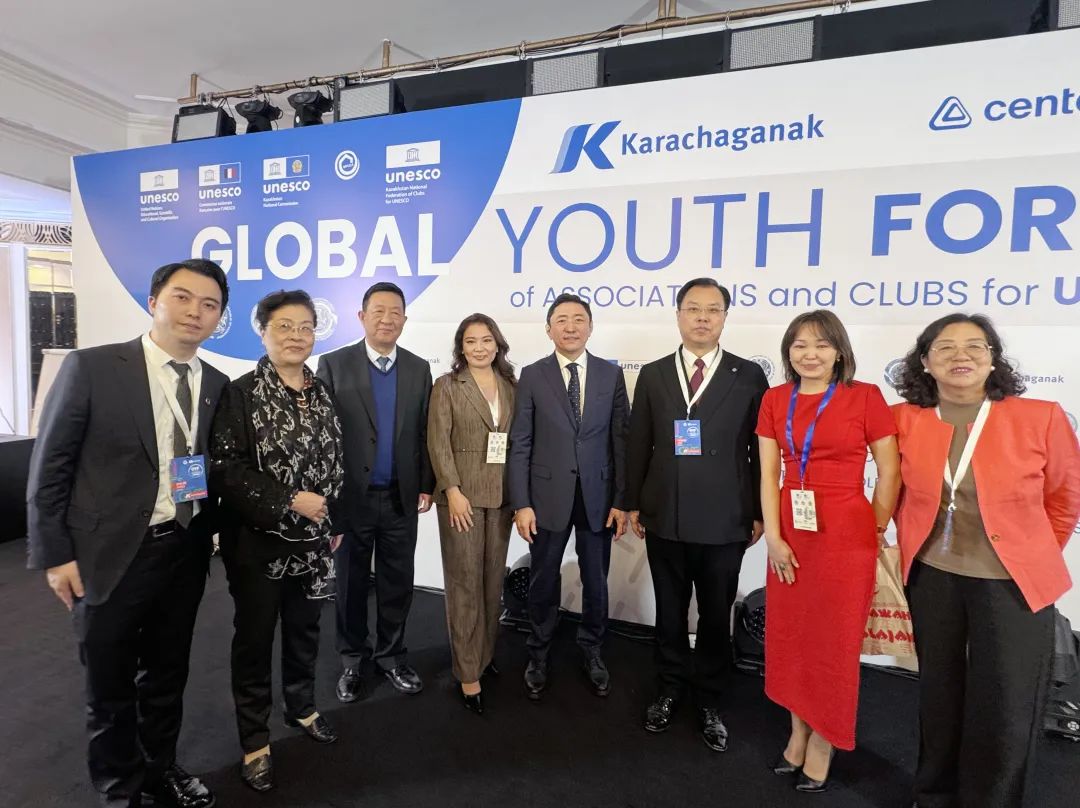
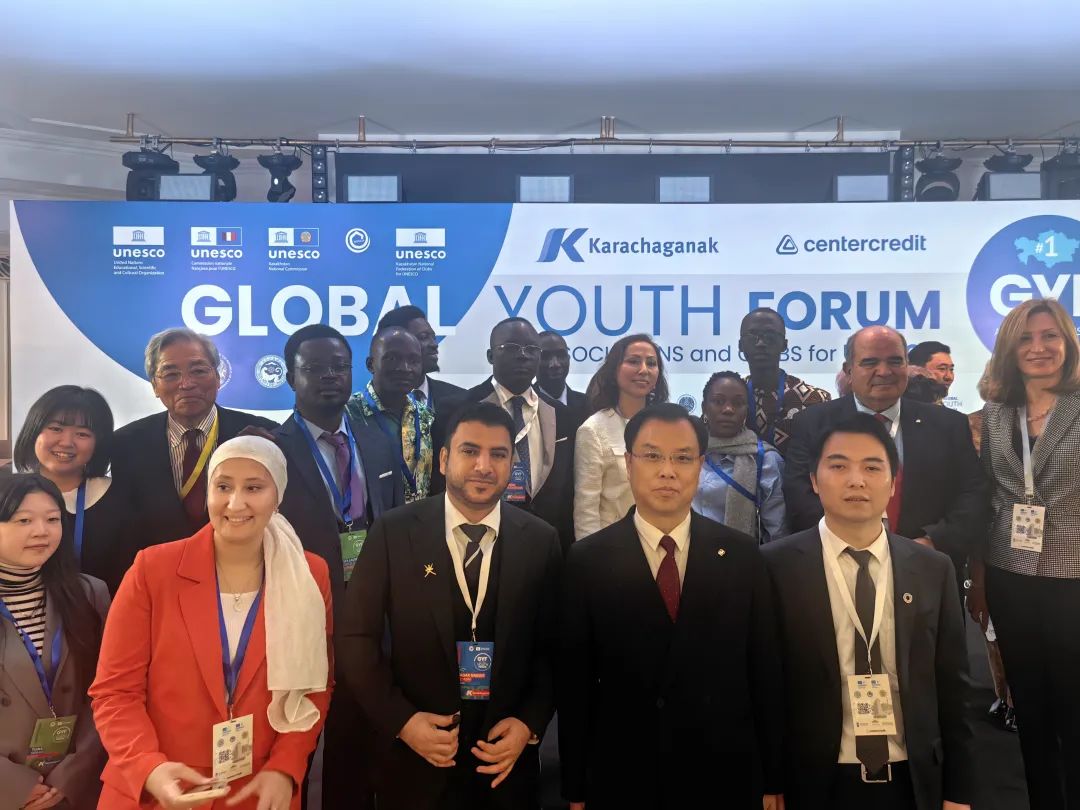
Group Photo of the Participants
Jointly Building a Community with a Shared Future
At the closing ceremony, Bolat Akchulakov, 10th President of the World Federation of Clubs, Centres and Associations for UNESCO delivered the concluding remarks, and WFUCA Secretary-General Du Yue presided. Zhanar Shaimenova, Secretary-General of the Kazakhstan National Commission for UNESCO and ISESCO; Dr. Amir Piric, Director of the UNESCO Almaty Cluster Office; and Alexandre Navarro, Secretary-General of the French National Commission for UNESCO, delivered speeches focusing on youth empowerment and global collaboration.
Akchulakov emphasized the importance of international cooperation in addressing global challenges and promoting educational innovation. He announced that youth capacity building would be at the core of WFUCA’s agenda for the next five years and called on governments and enterprises to support the Youth Roadmap’s actions, injecting fresh momentum into youth participation in global governance and sustainable development.
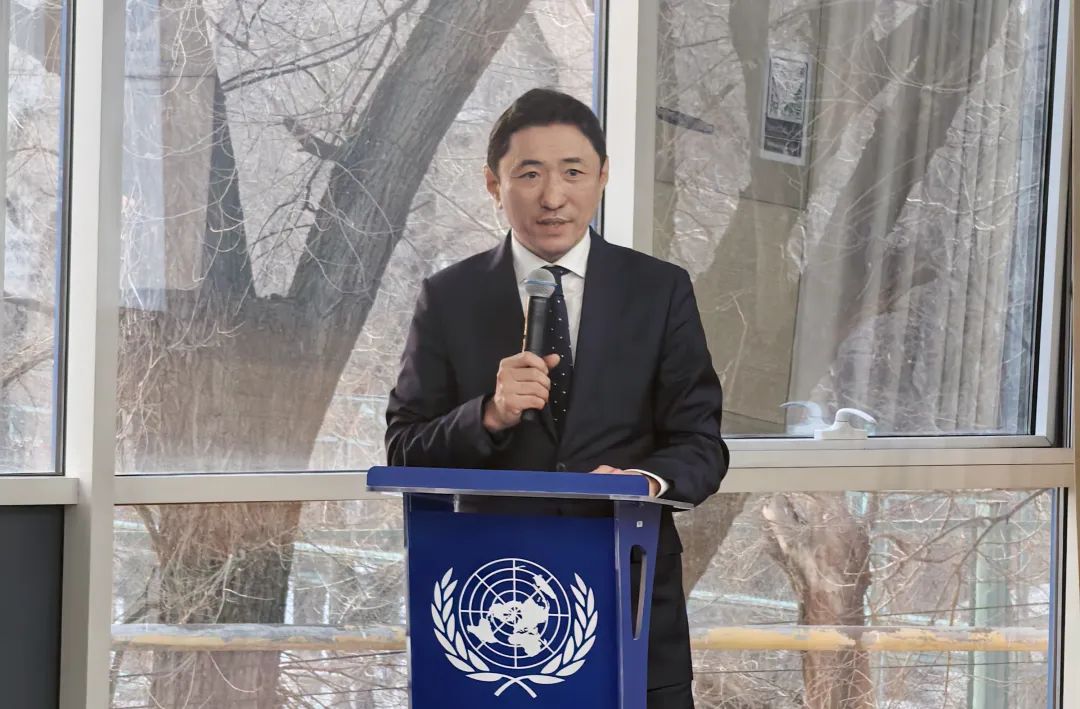
Bolat Akchulakov, 10th President of the World Federation of Clubs, Centres and Associations for UNESCO
(Concluding Remarks)
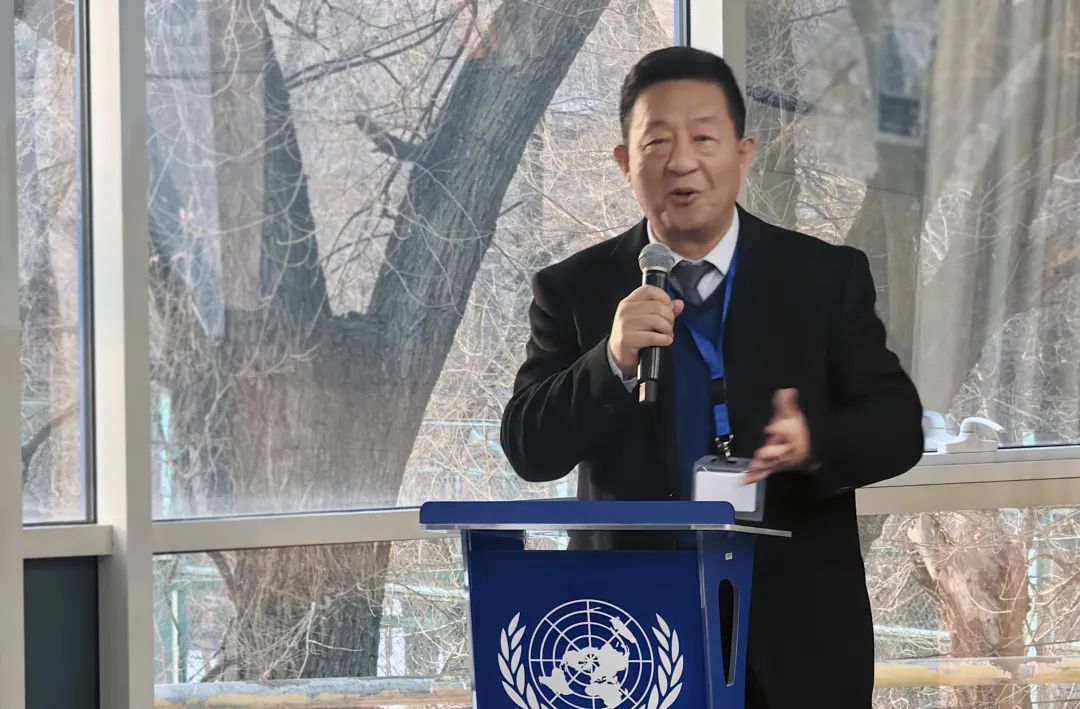
Du Yue, Secretary-General of WFUCA of UNESCO
Presiding Over the Closing Ceremony
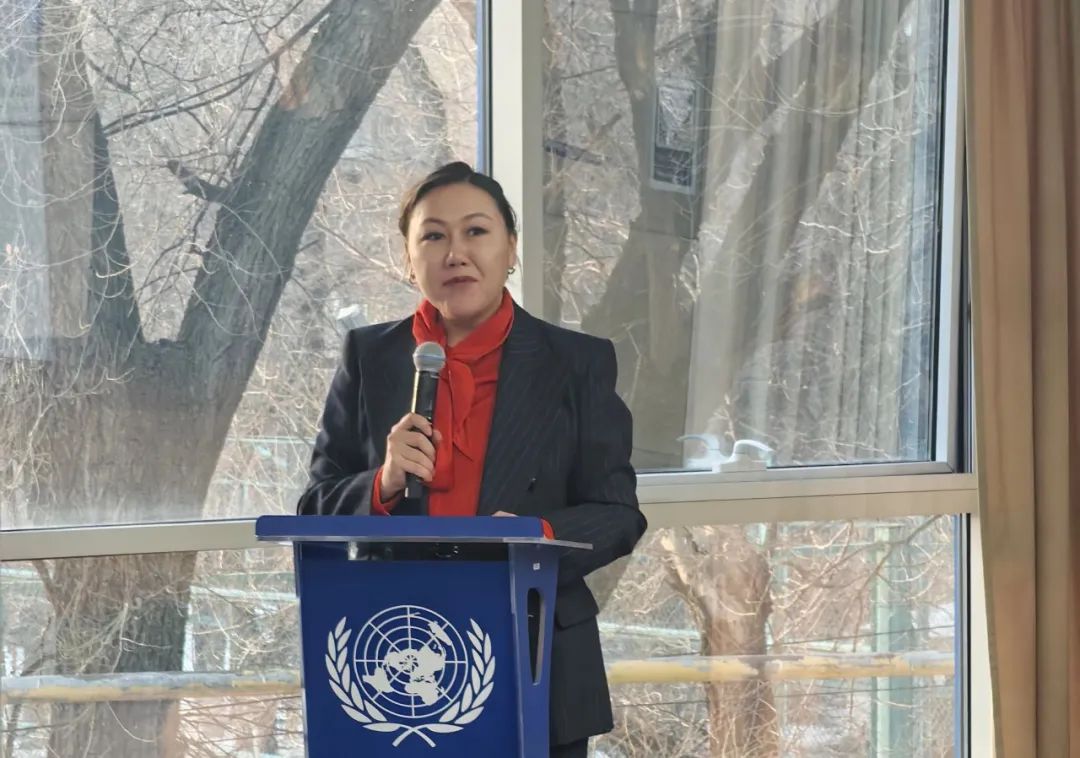
Zhanar Shaimenova, Secretary-General of the National Commission of Kazakhstan for UNESCO and IСESCO
(Speech)
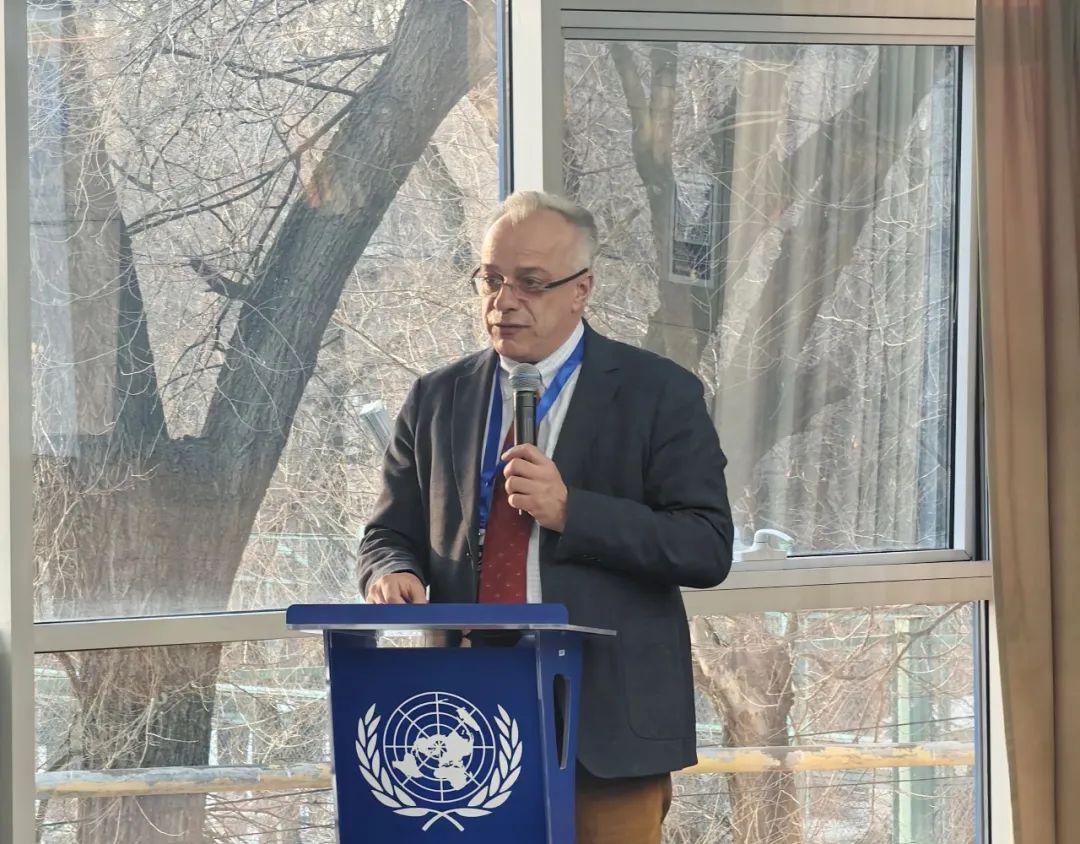
Amir Piric, Director of the UNESCO Almaty Regional Office
Speech
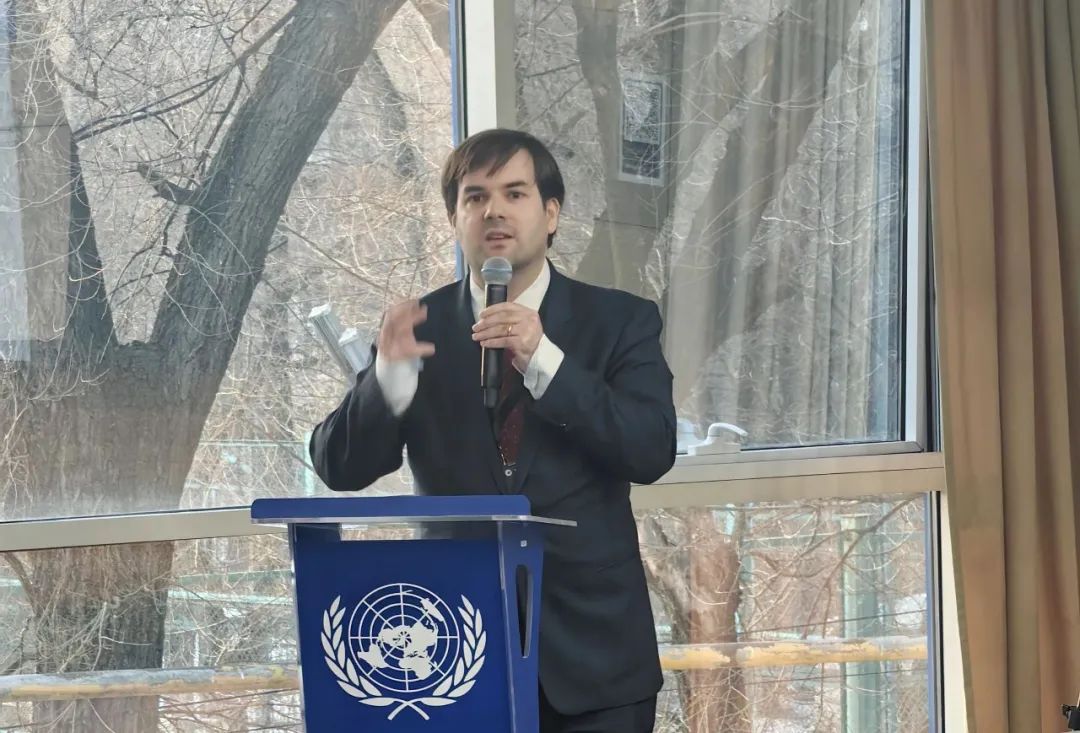
Alexandre Navarro, Secretary-General of the French National Commission for UNESCO
(Speech)
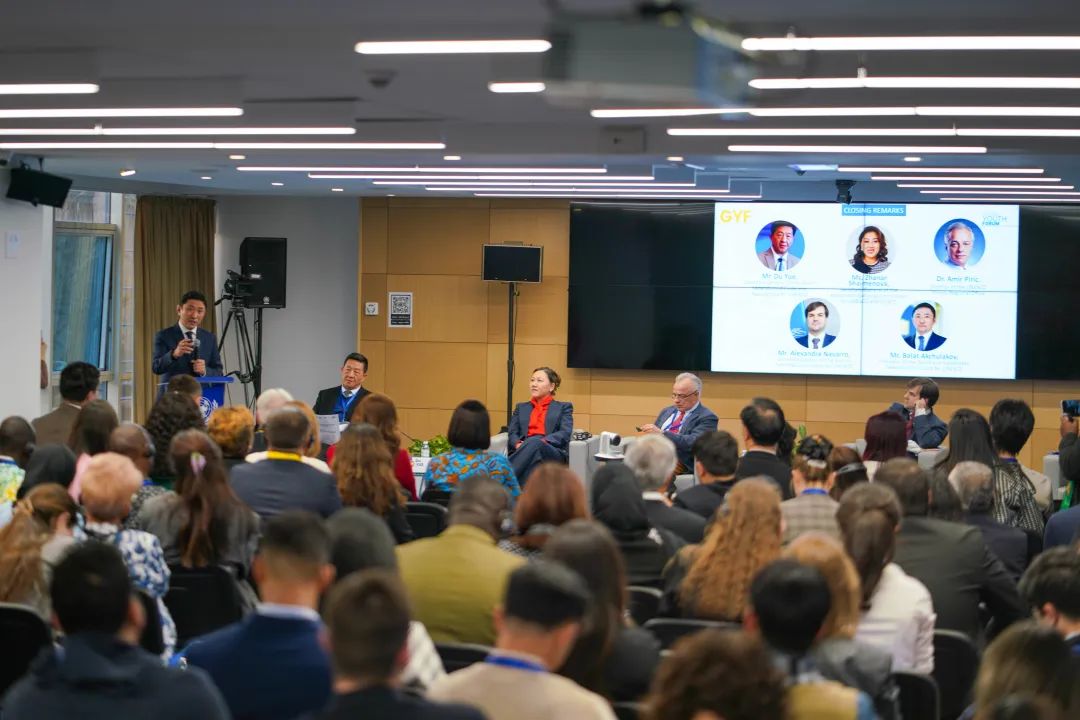
Closing Ceremony
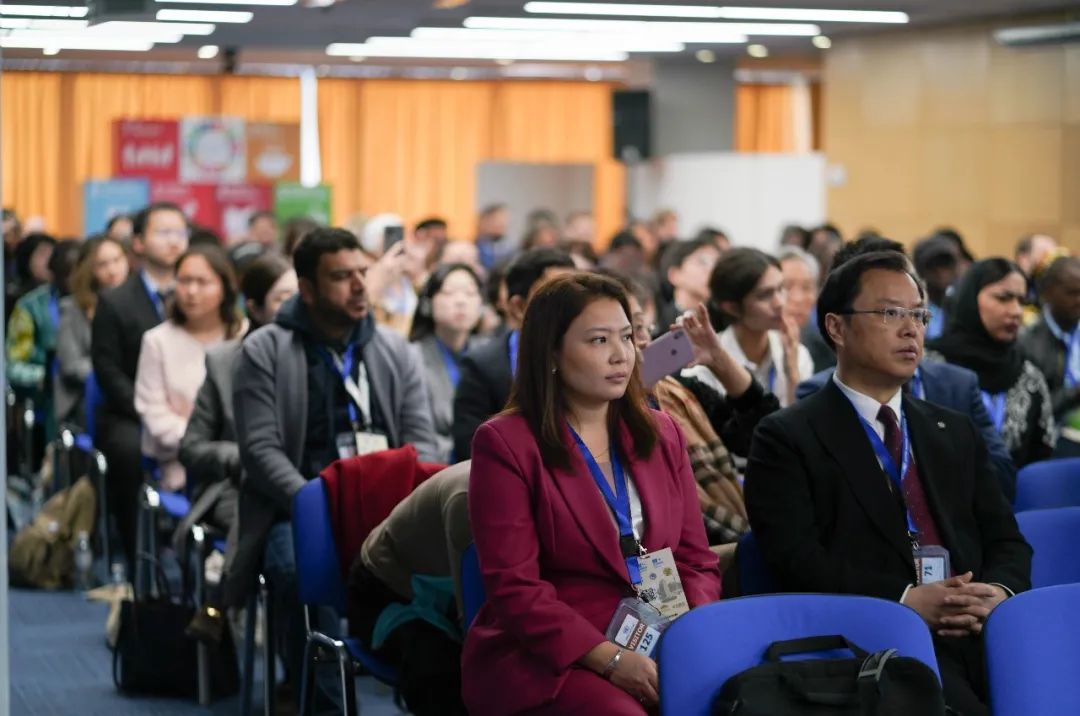
Closing Ceremony
The forum also featured special lectures, interactive discussions, and cultural performances. Participants exchanged ideas and advocated actions on youth education, youth culture, and youth innovation—topics closely related to young people—building a global youth cooperation network and reaching multiple action consensuses. The event united the broadest possible youth strength to advance the implementation of the United Nations 2030 Agenda for Sustainable Development.
